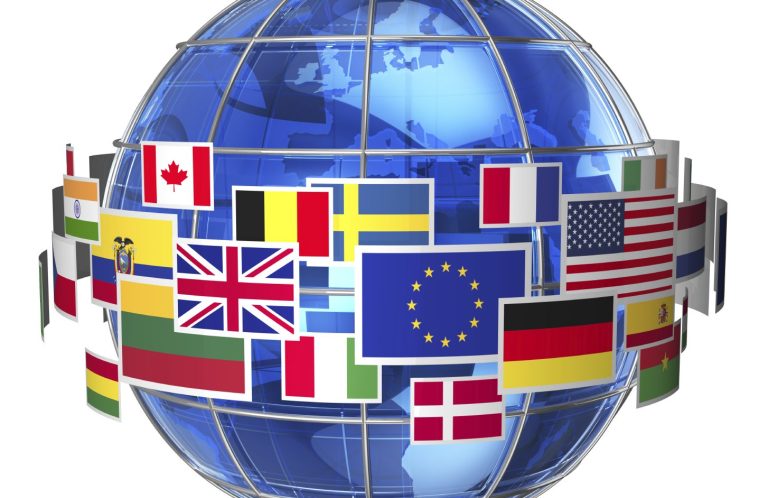Our Research
JINA Alliance plays a vital role in advancing knowledge and improving outcomes in areas like democracy, human rights and global security.
Our research guides us in determining how to prioritize our resources to achieve the maximum beneficial impact for our broad scope of international work, ranging from human rights in the Middle East, to democratization in emerging economies, peace-building in Africa, the use of artificial intelligence and forced labor in China, environmental and social responsibility in Europe, ending gender apartheid in Afghanistan, comprehensive approaches to women's rights, and more.
Expertise
High levels of skill and understanding, acquired by training, study or practice.
At JINA Alliance, we believe there is no substitute for expertise. Our expert advisors bring a level of knowledge and judgment to our specific areas of research that go beyond situational awareness. The expertise we rely on involves understanding, experience, and the ability to apply knowledge effectively.
Research
Systematically investigating a subject to expand existing knowledge.
"Research work" refers to the process of systematically investigating a subject to discover new information, expand existing knowledge, or develop new applications of existing knowledge. It involves collecting, analyzing, and interpreting data to reach conclusions, often within a specific field or discipline.
Analysis
Identification, comparison and insights to extract new strategies and ways of thinking.
Our analysis involves deconstructing research, information, data and concepts to better identify patterns, precedent, draw comparisons and render meaningful conclusions. For any given field of study, examining data and information closely gives us insights into a broader topic or phenomenon, and how to develop impactful strategies to improve lives.
Our research areas
In line with our mission, research and analysis at JINA Alliance is multidimensional and has global reach. Around the world, human rights guarantees and the security of democracy are always in flux, requiring us to maintain a keen lens on changing circumstances to inform our research. Below is a sampling of research areas in which we target our advocacy and collaboration efforts.

Human Rights in Iran
The spirit of JINA Alliance is rooted in the Iranian Woman Life Freedom movement. Our research today involves understanding the economic, political and human rights aspects of the Iranian people's calls for freedom and human rights.

Diplomatic and Foreign Relations
We monitor and study relationships between governments to identify their synergies, trade alliances and political dynamics to supplement our global advocacy work.

Human Rights in Afghanistan
JINA Alliance is committed to helping to end the rule of the Taliban over the Afghan people, and to help ensure this brutal regime does not become a legitimized government.

Dealings Between Oppressive Regimes
Our advocacy shifted from Iran-specific to its current global breadth when we focused our research on the mutually reinforcing dynamics between oppressive regimes.

International Law
International legal mechanisms such as the ICJ, ICC, UN Convention Against Torture, and International Independent Fact-Finding Mission on Iran are critical tools to support global advocacy. Our research helps to ensure the implementation and value of these tools is fully extracted.

Child & Forced Labor
Child and forced labor remain critical areas of concern across a wide range of geographies, from Central and South America, to the MENA region, Central Asia, Africa and China. Our advocacy includes efforts to advise companies to ensure untainted supply chains.

Human Rights in Tibet
We believe wholeheartedly in freedom for the people of Tibet. In collaboration with our Tibetan activist partners, we strive to create stronger mechanisms to advocate for their rights, such as through Tibet-focused legislation in the U.S.

International Trade
We track developments in international trade that can impact human rights and democratization efforts. This includes the participation of oppressive regimes in bilateral investment treaties, trade associations and the private sector to legitimize their rule and entrench themselves into the global economy.

Artificial Intelligence
Artificial intelligence presents a new frontier and unseen challenges in protecting against human rights abuses and advancing calls for global democracy. Our research includes understanding how disinformation, algorithmic abuse and monitoring intelligence is used by regimes to silence dissent.

Cyberwarfare and Internet Suppression
From censorship and surveillance, to crashing websites, hacking social media of activists, attacking infrastructure and more, we advocate for stronger measures and government action to provide free access to the Internet and freedom from harassment.

Uyghur Human Rights
Since 2014, the Uyghur people based in Xinjiang China, have suffered severe oppression. Mass arrests, torture, forced labor, family separation, sexual violence, religious persecution and forced sterilization are widespread. We work to ensure laws such as the UFLPA in the U.S. and other legal mechanisms are developed to gain their human rights.

Women's Rights
Women's rights are vital for the economic development, security, educational talent and community- building of any nation. We work to support women's rights issues in any context, such as working to end to female genital mutilation, ensuring equal employment opportunities, and being free from harassment and gender-based violence.

Human Rights in Myanmar
Myanmar continues to experience political unrest, ethnic conflict and civil war. Its recent history has been marred by conflicting issues, from Rohingya persecution to the coup d'état against its democratically elected government. Our research supports conflict resolution and support for human rights activists from Myanmar.

Democratization
At JINA Alliance, we believe democratic forms of government are most capable of enabling human rights, equal treatment under the law, economic opportunities, strong health systems and balanced security needs. We support advocates worldwide who seek a democratic form of government, or better democratization within their existing form of government.

Environmental Social Governance
ESG is a framework used to evaluate the environmental impact, social responsibility and corporate governance of companies and governments. Our research includes analyzing and guiding global actors on how to better incorporate ESG values, such as IFC and ILO Performance Standards, into their operations.

Gender Apartheid
Gender apartheid is an intentional, systematic and institutionalized form of gender subjugation that goes beyond gender discrimination. It is designed to enshrine the second class status of women into law, and persecute them for seeking equality. Our work supports the global campaign to end gender apartheid.

Indigenous Rights
Our research includes studying how well the guidelines in the UN Declaration on the Rights of Indigenous Peoples and IFC Performance Standard 7 are adhered to and implemented in company and government decision-making. Our research identifies areas that need greater advocacy, and we share our research with relevant stakeholders.

Rights of Flora and Fauna
Our mission goes beyond one species. We advocate and support international legal measures to advance animal and plant rights, including conventions such as CITES, CMS and UNCAHP, as well as the UNESCO Universal Declaration of Animal Rights. We support the development of a comprehensive treaty on animal welfare.

Religious Extremism
Religious extremism disrupts international peace and security, is an obstacle to socioeconomic development, and directly contributes to religious intolerance. We support countermeasures to combat religious extremism, through research collaborations with academics, advocacy with government stakeholders, legislation against extremism, and university programs to expose the dangers of unaddressed extremism.

Ethnic & Religious Minorities
Defending ethnic and religious minorities such as Kurdish and Baha'i people is central to our mission. We strive to ensure existing legal mechanisms, such as the UN ICCPR, ICECSR and UDHR, U.S. Civil Rights Act of 1964, UK Equality Act 2010, Declaration on the Rights of Persons Belonging to National or Ethnic, Religious and Linguistic Minorities, and national laws are fully honored. We support expanded and serious efforts to protect ethnic and religious minorities.

Refugee Rights
Refugees are among the people who suffer the most from anti-democratic, oppressive regimes and human rights atrocities. With shattered stability, lost homelands and sacrificed family ties, they struggle to find acceptance in new lands. Our support for refugees includes legal assistance for refugees in detention centers, funding for children's education in refugee camps, and therapy and healing programs, among others.

Sanctions and Compliance
Sanctions are a primary method for governments to identify and punish regimes and bad actors. Sanctions are frequently used to deprive human rights abusers of financial access, confiscate assets and limit their mobility. We develop research to strengthen enforcement within existing sanctions regimes, such as OFAC in the U.S., expose new targets of sanctions, and propose methods to counter sanctions circumvention.

Threats to Global Security/Terrorism
Global security goes beyond national security. Similar to the cross-border mission of JINA Alliance, global security recognizes that security threats, such as cyberattacks, human trafficking and biothreats, transcend national borders and require international cooperation to address. We engage in research on these critical security issues, and share our insights as educational advocacy, such as with leading think tanks and national governments.

Freedom of Expression
Freedom of expression is a fundamental value shared by transparent, stable and advanced democracies. Free expression is a determinant correlated closely with the degree of suppression, intimidation and physical harm that occurs in countries ruled by oppressive power. We champion expression that challenges human rights abusers, including musicians, artists, authors, and performing artists, by supporting the exhibition of their work and working to release artists that have been detained or arrested.
We need your consent to load the translations
We use a third-party service to translate the website content that may collect data about your activity. Please review the details in the privacy policy and accept the service to view the translations.